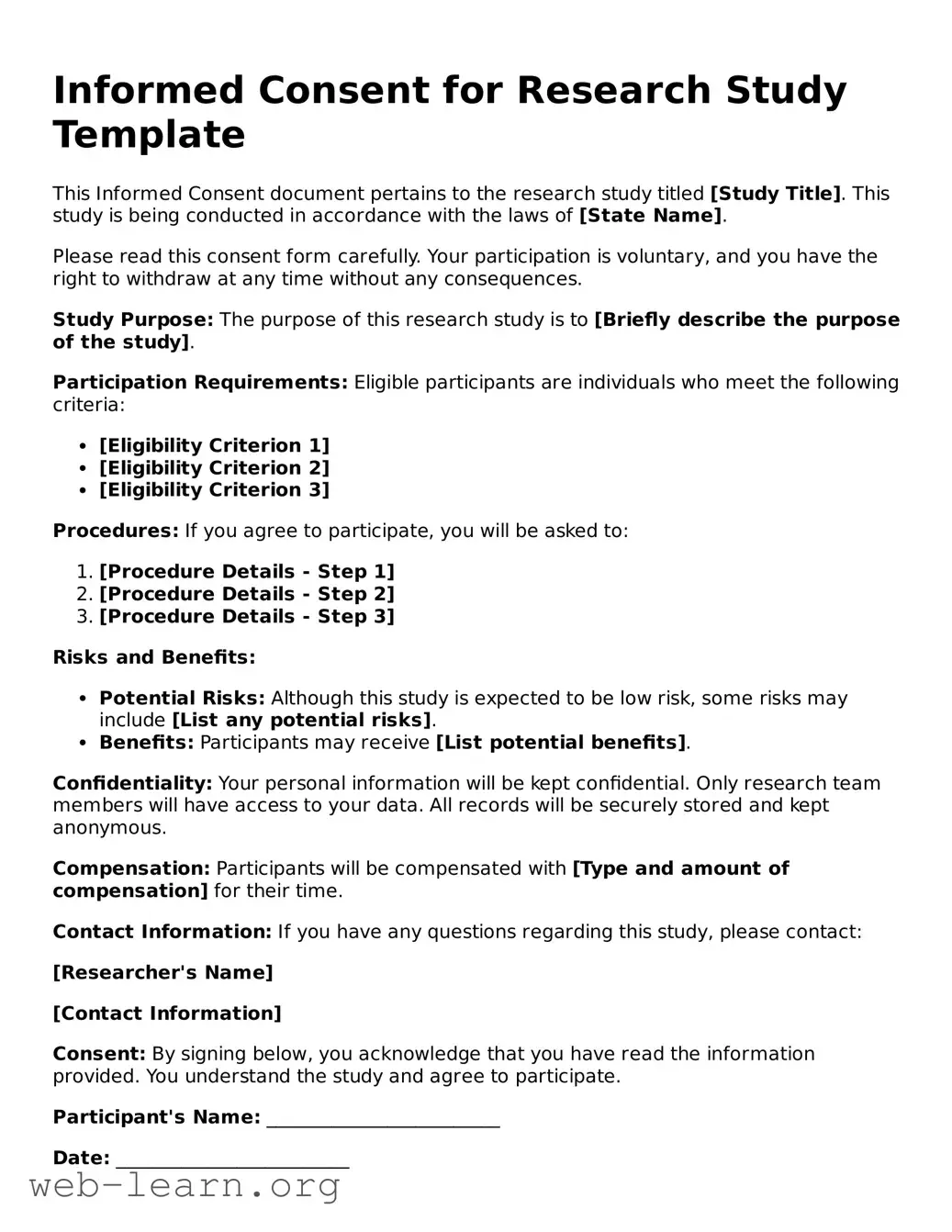Informed Consent for Research Study Template
This Informed Consent document pertains to the research study titled [Study Title]. This study is being conducted in accordance with the laws of [State Name].
Please read this consent form carefully. Your participation is voluntary, and you have the right to withdraw at any time without any consequences.
Study Purpose: The purpose of this research study is to [Briefly describe the purpose of the study].
Participation Requirements: Eligible participants are individuals who meet the following criteria:
- [Eligibility Criterion 1]
- [Eligibility Criterion 2]
- [Eligibility Criterion 3]
Procedures: If you agree to participate, you will be asked to:
- [Procedure Details - Step 1]
- [Procedure Details - Step 2]
- [Procedure Details - Step 3]
Risks and Benefits:
- Potential Risks: Although this study is expected to be low risk, some risks may include [List any potential risks].
- Benefits: Participants may receive [List potential benefits].
Confidentiality: Your personal information will be kept confidential. Only research team members will have access to your data. All records will be securely stored and kept anonymous.
Compensation: Participants will be compensated with [Type and amount of compensation] for their time.
Contact Information: If you have any questions regarding this study, please contact:
[Researcher's Name]
[Contact Information]
Consent: By signing below, you acknowledge that you have read the information provided. You understand the study and agree to participate.
Participant's Name: _________________________
Date: _________________________
Researcher's Name: _________________________
Date: _________________________
